‘A court packed with those who know their way around already, and jails are too full to take them’
As the courts dispatch swift justice to those involved in the race riots earlier this month, Zoë Beaty observes the grim scenes being played out in decaying towns where few believe this could never happen again


Within 10 minutes it’s over. Another fate is sealed. The process is simple and already repetitive: the defendant, this time wiry apprentice electrician Declan Dixon, 22, wearing prison-issue grey tracksuit bottoms, is brought up from the cells to court number 7.
As the charges are read – violence disorder, possession of cocaine – he bows his head. A weary defence lawyer makes a case for bail – Dixon, who pleaded guilty to all offences, would like, he says, to visit his mum in Wigan, to say goodbye.
Dixon cuts a pitiful figure standing in the dock, which is covered with a thick layer of dust. He nods earnestly in the direction of the judge as the appeal is made. He accepts he’s going to jail, his lawyer explains to the court, “because he’s been seen on TV” taking part in the Hartlepool riots on 31 July. But, just like the scores of others shuffling through the court this week pleading for a break, he finds that the judge is unwilling to pander.
Dixon leaves the courtroom and is escorted back to the cells to await sentencing. Others are receiving 20 months for similar offences committed during the riots that spread across the country earlier this month. The chances of him sitting in his mum’s kitchen any time soon are slim.
The backdrop to this sorry scene is Teesside Magistrates’ Court, an antiquated building close to a downtrodden city centre. The riots that erupted across the country on 29 July might have been quashed for now, but here the process of delivering justice has only just begun. More than 50 people have been hauled before a judge here in the past week; on 6 August, 27 were dealt with in one day.
It’s a snapshot of a grim wider picture. The police have now arrested more than 1,000 people involved in the racially motivated violence that began at the end of last month. On Tuesday, the National Police Chiefs’ Council (NPCC) confirmed that 575 people had been charged, and warned that there were “hundreds” more to come in a crackdown that is likely to last for weeks to come.
The violence being documented in the courts has in some cases been unprecedented and grotesque. In Rotherham this week, a 60-year-old man was sentenced to two years and eight months for his part in the terrifying violence that took place outside a hotel used to house asylum seekers.
Over in Chester, a 53-year-old woman who lived a “quiet, sheltered life” was jailed for 15 months after she admitted posting a threatening Facebook message that stated: “Don’t protect the mosques, blow the mosque up with the adults in it.”
Middlesbrough has also seen cases that have become synonymous with the heinous disorder that began in the days that followed the stabbing of three young girls at a dance studio in Southport.
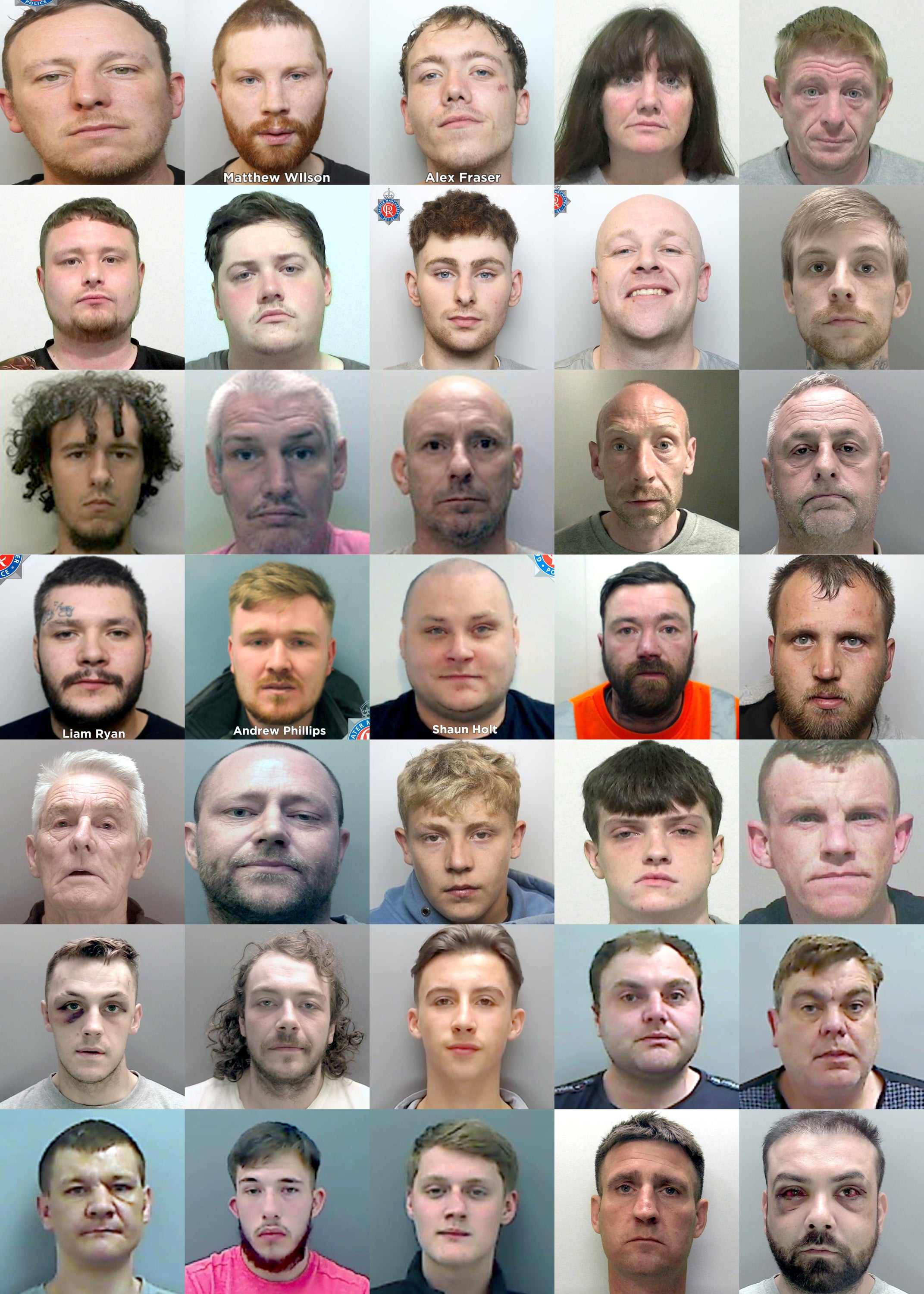
Last week, Stacey Vint was sentenced to 20 months in prison for pushing a burning wheelie bin into a row of police officers. On Monday, Thomas Rogers appeared here, too. He was described as “the idiot with a hoover” by the landlord of a house the 22-year-old smashed up with a vacuum cleaner.
The court heard that he threw bricks at police officers and told them that he hoped their children would be raped as he was taken into custody after the riots on 4 August. His young defence lawyer, Tabitha Buck, told the court that Rogers was “overwhelmed” by the stabbings in Southport, “and by what he says is a lack of reaction from the police”.
The cases keep on coming – in the courtroom, horrific Islamaphobic slurs are read out in monotone as cases are set out, and lawyers wrangle over video replays of defendants shouting “We want our country back.” Those sat in the dock hear their words read back to them. Adrenaline-fuelled bravado now drained, some defendants look mildly ashamed, at least while in front of a judge. The majority I see plead guilty, meekly accepting their involvement and the punishment to come.
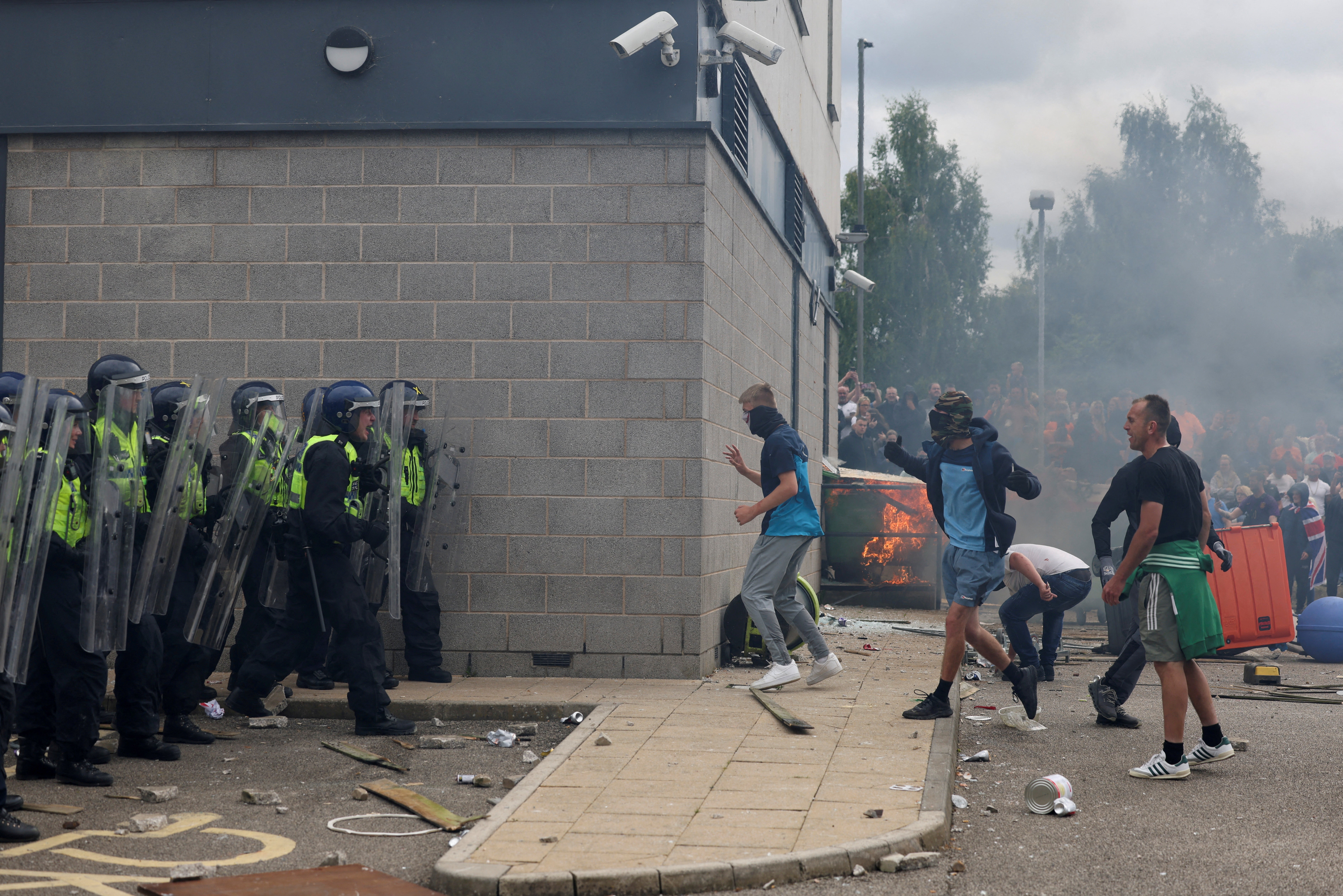
In the public gallery, however, it’s sometimes not so quiet. Members of one family, who have come to get a glimpse of their 18-year-old grandson emerging from custody, are visibly upset. “This doesn’t happen to families like ours,” they say as the five-minute hearing ends. “We’re a good family.”
There are small gatherings of people waiting outside on the court steps, too, and a few low-key disturbances have happened inside the court. “There was a report of one guy shouting from the public gallery,” says Paul Doney of the CPS. “He’s now been charged for his own involvement in the riots.”
It’s mostly the same sort of people sitting in the public gallery, I’m told; people wearing tracksuits and flip-flops to court – those who “know their way around already”, says Alex Storey, a reporter for the local North News and Pictures. He was on the front line of the riots across the North East, which hit Hartlepool, Sunderland and Middlesbrough in quick succession. Since then he’s been talking to victims, and sitting on countless press benches in courts across the region.
It’s been 12 years since I too was a local news reporter on this beat, but Teesside Magistrates’ Court is exactly as I remember it. The late-1980s turquoise flooring; polystyrene squares that cover the ceiling between strip lighting; the squarks of seagulls outside comically echoing in clinical corridors. In the courtrooms, magistrates sit at worn desks. Opposite the plastic blue seats in the public gallery, graffiti is etched into the wooden balcony railings.
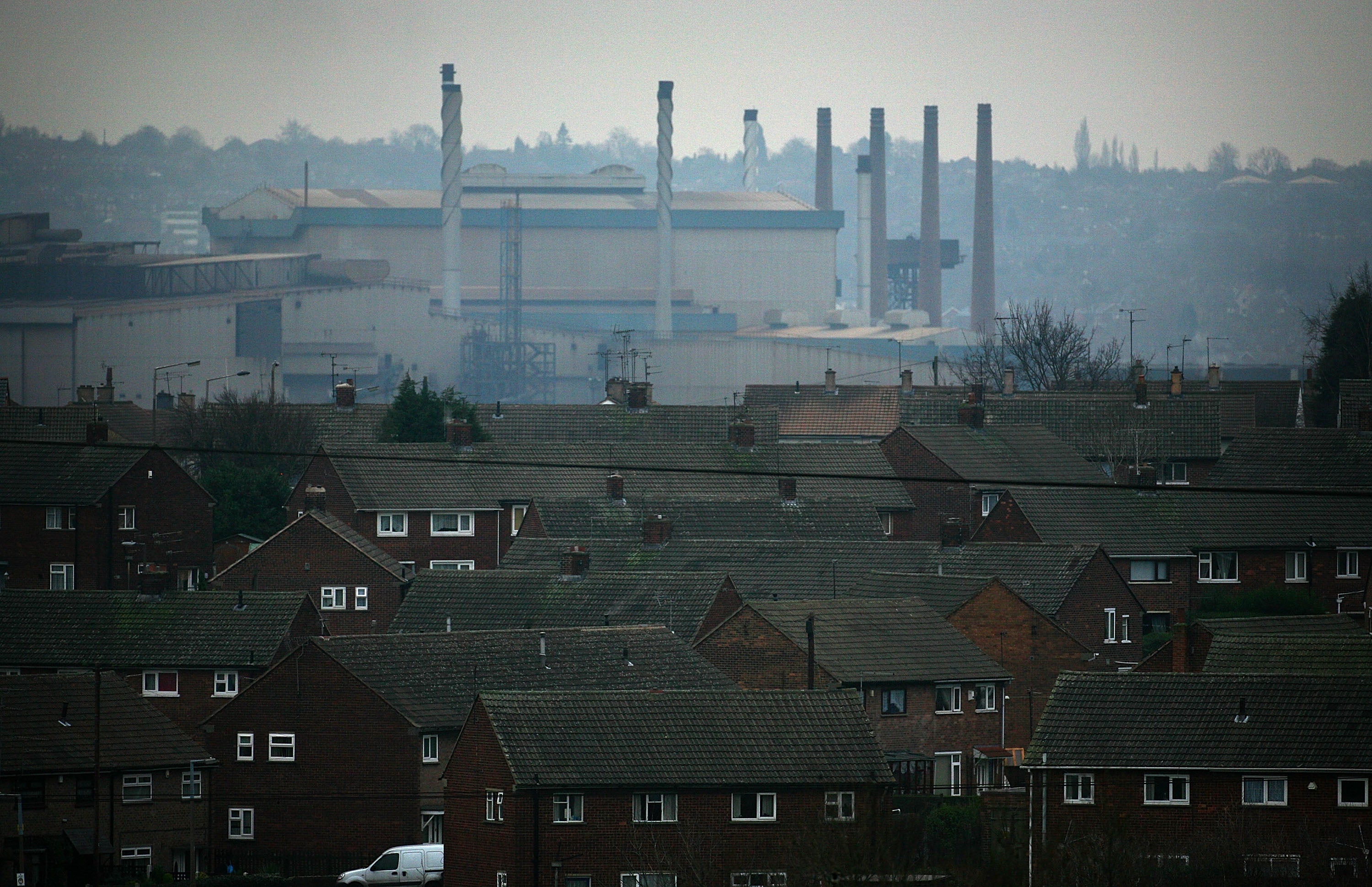
The time warp extends to the town itself. I notice only small changes, and none for the better. The public library opposite the courts now has boarded-up windows. Shops that once dominated the high street, such as Debenhams and House of Fraser, are today dormant and decaying, and there are empty and half-empty baggies of drugs scattered on the paths.
The fountain outside the Crown Court, in the regenerated university area, has been shut off due to a rat problem, I’m told. “There’s no ‘levelling up’ here, no matter what they tell you,” a court usher says as we chat in the foyer. “That’s the problem.”
The area has a long, deeply entrenched history of neglect. The once thriving steelworks felt the sharp end of Margaret Thatcher’s policy of privatisation in the late 1980s, as a 170-year-old industry that, despite several sales and attempts to save it, has since seen nothing but decline.
The final closure, in 2015, led to a 13 per cent rise in unemployment – mainly among predominantly white, working-class men over the age of 50. Out of work, many were consigned to the benefits system. Multigenerational unemployment, along with a mood of resentment and frustration, was left to fester by governments of both colours. Earlier this year, a report by the Joseph Rowntree Foundation showed that Middlesbrough had the highest rate of child poverty in the North East – almost half.
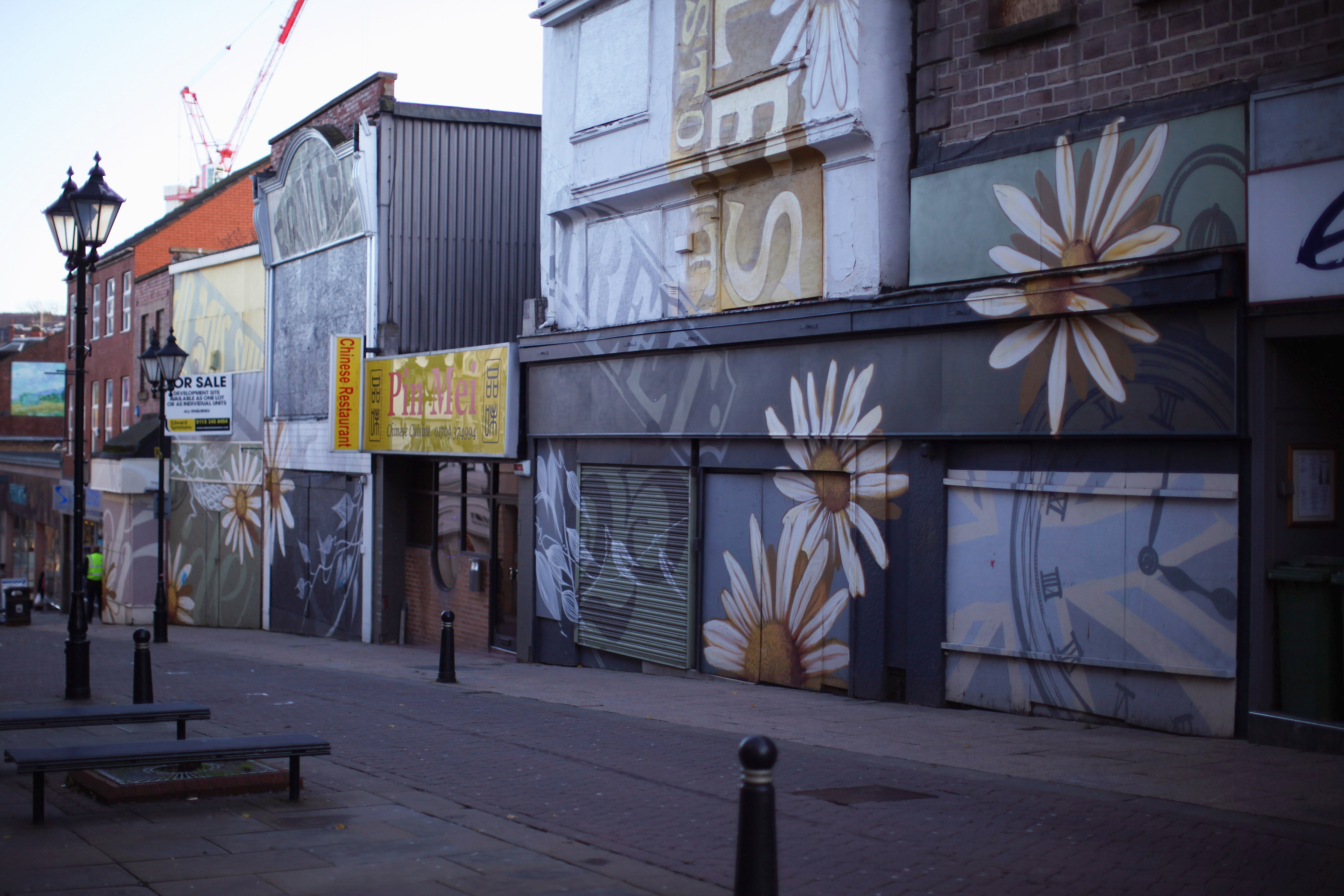
The other cases in court this week add to the picture of a town trapped in a downward spiral, where opportunities are few and people to blame are many. One case includes a woman facing a charge for a £13.15 theft from Morrisons “because she was hungry”, a defence lawyer tells the court. Theft related to drug use is a common theme.
I sit with Leanne, from Hartlepool, as she waits nervously for her partner, who has been on remand for eight weeks for common assault. She says his crime was related to complex mental illness – yet he’s been waiting for two years for therapy.
“Things are hard,” she says, quickly adding that neither her partner nor any of her family had anything to do with the riots. “It’s scary,” she continues. “I’m scared to let my kids out. I don’t want them to grow up like this. I’m scared for myself, even.”
Take a 10-minute walk from the courts, and it’s clear why. Garnet Road – an area just off the city centre, where there’s a large Asian community – was “decimated” during the riots, Storey says. “Cars have been smashed, front windows have been smashed.” Vehicles were also set alight, and curtains ripped from front rooms to be used as tinder.
“We thought the court was a goner,” one usher tells me. “They came right past. All the university buildings [five minutes’ walk away] were smashed up, too.”
The court survived, but it’s now being put through its paces by prime minister Keir Starmer’s rapid sentencing plan. In full swing in Teesside and across many other deprived northern towns, it seems to be working, albeit aided by a significant amount of elbow grease from exhausted court employees. Many rioters are being sentenced within four days of their plea hearing, a process that Doney tells me would usually take around four weeks.
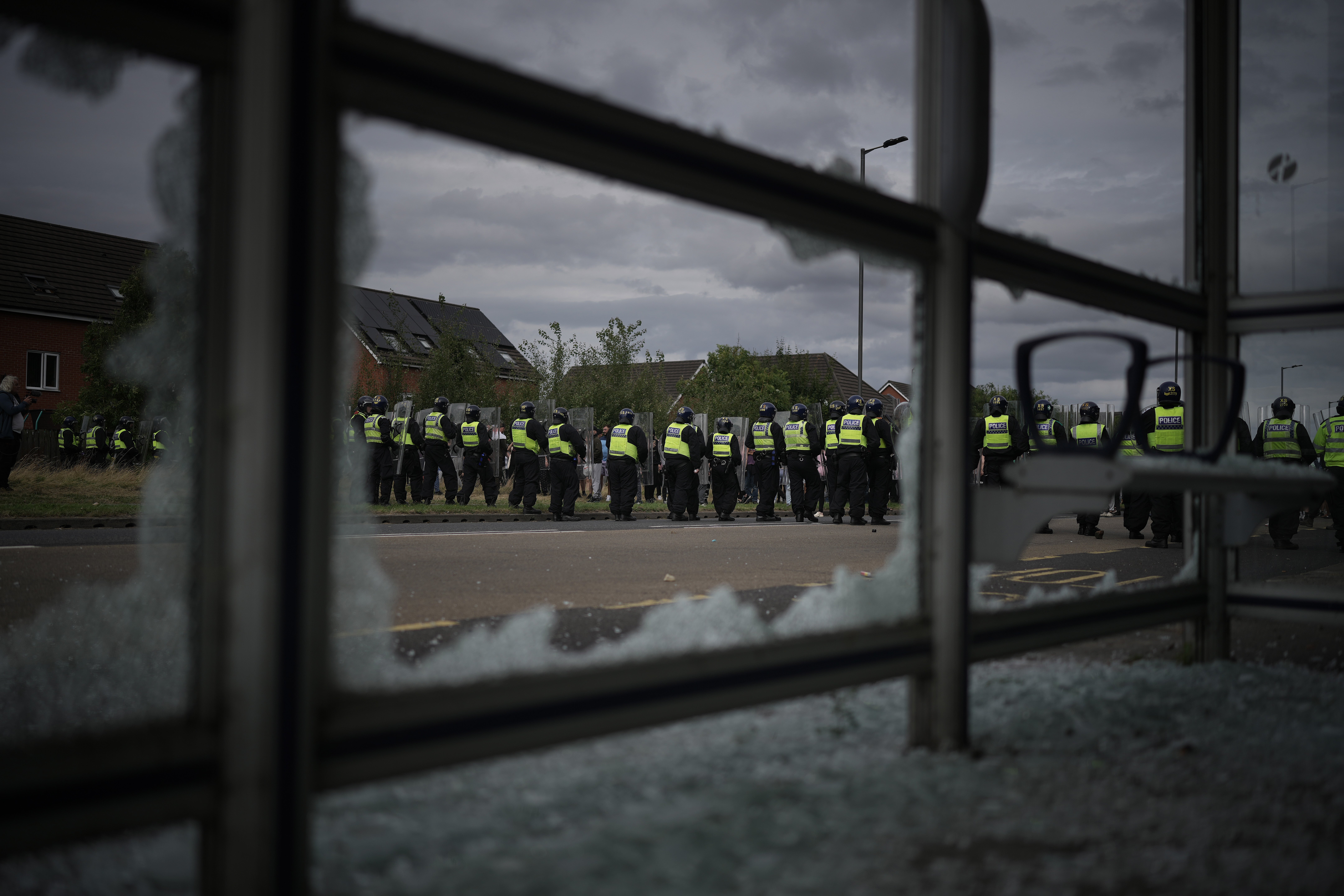
“Starmer wanted the courts open 24 hours – well he nearly had that last night,” a security guard at the magistrates’ court tells me. He finished work at 11.55pm the night before; the van drivers, ferrying prisoners between cells, “didn’t get off until 3am”, he says. “There’s nowhere to take the prisoners. Everywhere is full.”
So far, UK courts such as this one have sent a robust message – that racism and violent disorder won’t be tolerated. For now, the rioters are off the streets, many beginning fair, hefty sentences in overcrowded prisons or languishing in full-to-the-brim police custody. But these short hearings can’t give answers to why the story is unlikely to end there.
“They’re all looking for someone to blame,” a man in his mid-fifties, who doesn’t want to be named, tells me outside the court. “It was inevitable. People are p***** off – for the wrong reasons, or with the wrong people, like, but they’re p***** off. They don’t trust the government or the media. They think it’s all someone else’s fault.”
You can remove the thugs from the street, he’s essentially saying, but the conditions remain for misguided anger to froth over into violence once more.
Today, locals in the surrounding streets are busy trying to fix things up and erase some of the damage caused to their community. The lists for court hearings are still growing in Middlesbrough, as they are in neighbouring Newton Aycliffe, and further north in South Tyneside, Sunderland and Newcastle.
“They’ll keep coming,” Doney says. And the pressure on the court officials, prison staff and police will keep building. But, however busy the justice system will be for the foreseeable future, the real work for those taking stock hundreds of miles away in Westminster is just beginning.

